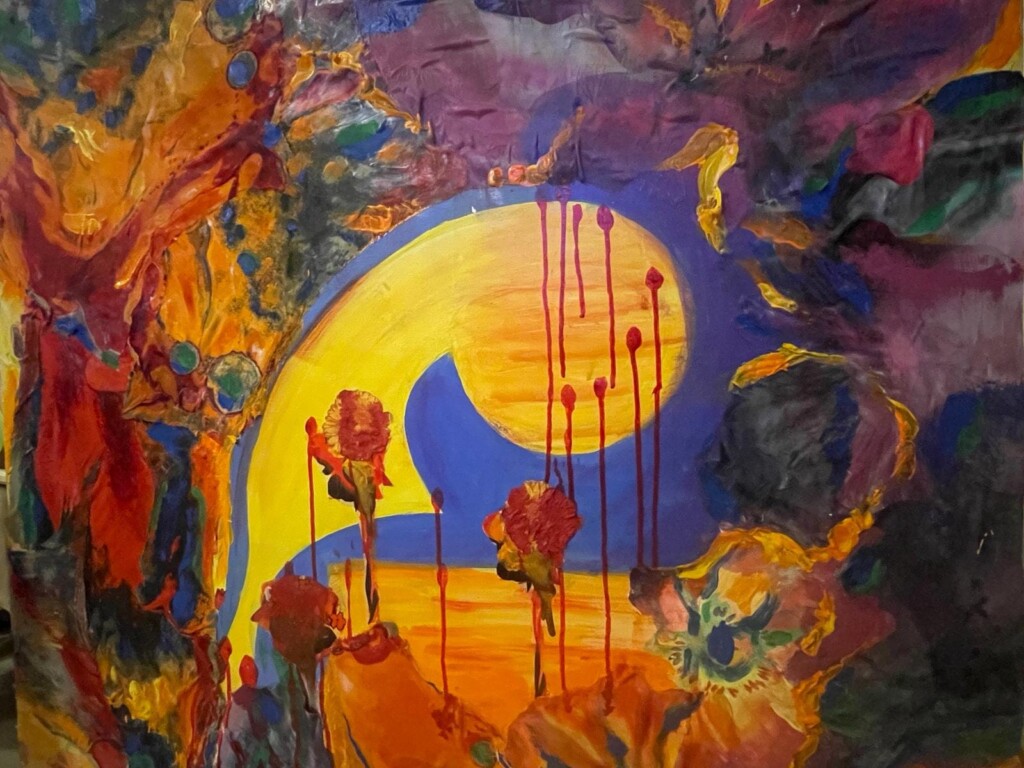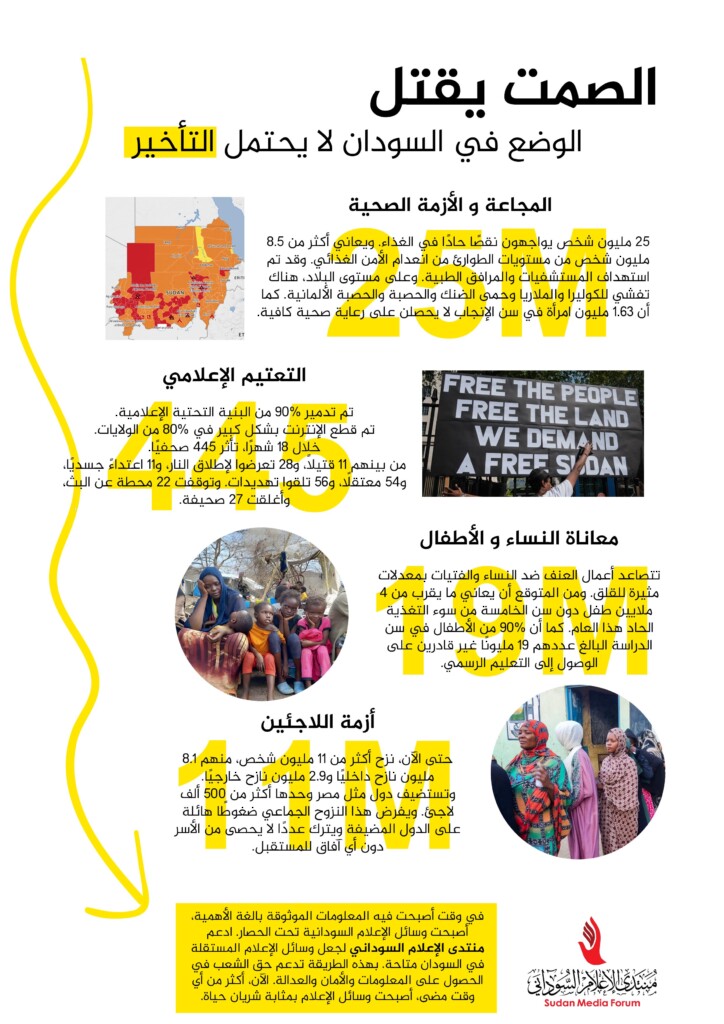Rape and physical enslavement of women is a tool of criminal war in Sudan

'The Girl Rising Like the Sun Is Raped' painted by Suzan Khalaf Allah Abu Shama
Sudan Media Forum*: Joint Editorial Room
Prepared and edited by: Al-Alaq Centre for Press Services
Some residents of a neighbourhood south of the belt in Khartoum woke up at dawn to the sounds of gunfire followed by the screams of one of the girls. They went out to the street. They found the girl lying on the ground soaked in blood. She told some of her presence about her family’s whereabouts. She reported that she was taken in a vehicle by soldiers from the Rapid Support Forces (RSF). She said the soldiers assaulted her.
According to eyewitnesses, they heard the girl’s screams and gunshots early, but they could not get out of their homes for fear that they would be killed, and after the vehicle moved away they went out and saw that there were a number of bullets in the girl’s body.
Miscellaneous violations
As this war approaches its second year without a horizon to stop it, there are many grave violations against women, especially rape, which was used as a weapon in the 2003 Darfur war, and has now become a criminal war tool to humiliate conservative communities in villages and countryside, in addition to slavery, forced marriage and slavery, according to national and international organisations working in the fields of human rights, women’s defence and gender.
679 rape cases
Documented reports confirm that the number of these systematic violations against women is constantly rising, reaching 679 cases of rape who were transferred to all medical facilities due to health complications and severe damage.
Reports issued by local and international organisations indicate that there are many other cases that have not been monitored, documented, or reached hospitals due to the abstinence of families and fear of social stigma.
According to these sources, there are many cases in Darfur and other areas in Sudan, most of which were not documented or recorded in hospitals as a result of the total destruction of the health sector, where reports indicate that 90% of hospitals are out of service, which exacerbated the suffering of women, especially survivors.
Painful scenes
With the increase in cases of rape following raids by the Rapid Support Forces on villages and countryside in the areas they recently invaded, rapes have increased, many of which have not been documented due to the siege they are striking around those remote rural villages.
An expert specialising in psychotherapy for battered women, who preferred not to be named, said that the inability of residents to leave prevented access to those wishing to receive treatment, in addition to the reticence of some for fear of stigma and shame that may be inflicted on the family.
She explained that the absence of social supporters, especially those active in civil society, and their inability to reach out of fear for their personal safety has reduced their role in providing psychological support to victims and survivors. She said that this absence may lead to suicide among rapists who need examinations, medicines, and periodic and psychological follow-up.
She stressed that the developments of the ongoing war and the resulting lack of medicines, especially life-saving and other medicines used in the protocol, the lack of safe corridors and the sufficient number of medical staff led to complications in the health status of survivors, especially young women.
Post-war preparation
Another expert specialising in psychotherapy for battered women called for preparation from now on for the post-war phase. “Focusing on the pattern of crimes and how to reach the recovery stage requires this preparation because there are many facts that will appear to people,” she said. She added: “The cases that were attacked last year and appeared with diseases, we must be their follow-up and early examination and provide the necessary treatment.” She also called for the need to make gains from this war, foremost of which is women’s security, safety, and protection.
She called for the need for primary health care to meet the needs of women and serve them as the most widespread health system. She added (this system can reach villages and countryside whose people, especially women, were exposed to different forms and patterns of sexual violence and their people were unable to access remote health services,) and stressed that this system can make the required psychological recovery. The expert specialised in psychological treatment for battered women in the post-war period predicted that it will be the worst in the history of Sudan, adding (there will be In remote rural areas, many problems will appear among women who have been subjected to sexual violence and sexually transmitted diseases, most notably syphilis, gonorrhoea, and the most serious of which is AIDS, liver disease and urinary fistula caused by gang rape). She stressed that all these diseases have a health and psychological risk for victims of sexual violence. She called for the need to pay attention to them and find sufficient funding to respond to them in a timely manner.
*This report is published simultaneously on the platforms of media and press institutions and organisations that are members of the Sudan Media Forum, a coalition of independent media outlets and organisations.

#SilenceKills #الصمت_يقتل #NoTimeToWasteForSudan #الوضع_في_السودان_لا_يحتمل_التأجيل #StandWithSudan #ساندوا_السودان #SudanMediaForum











 and then
and then